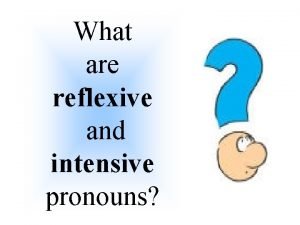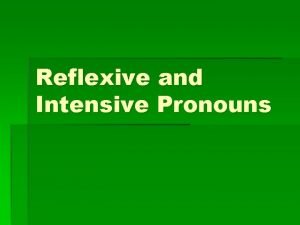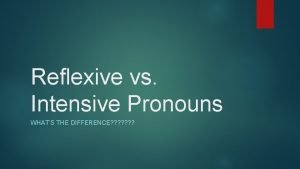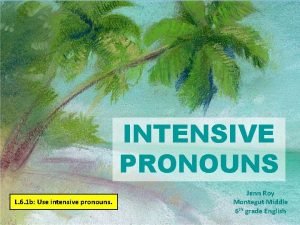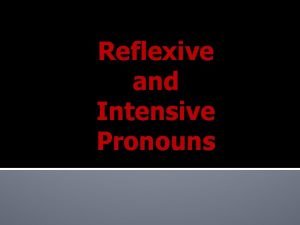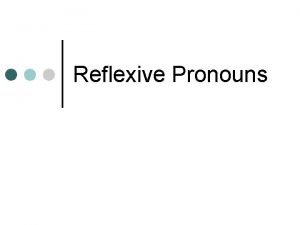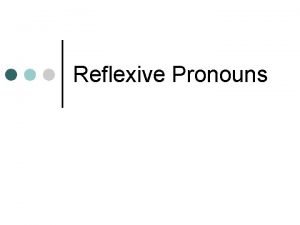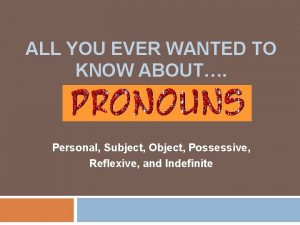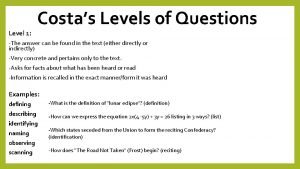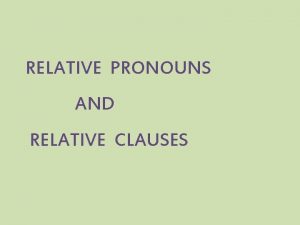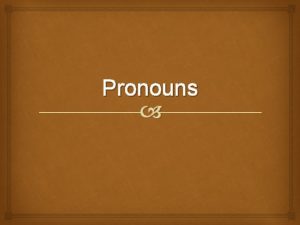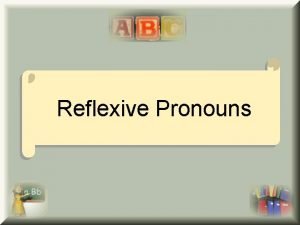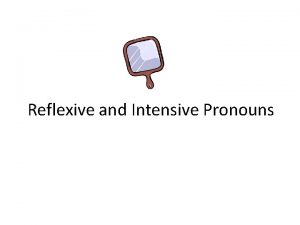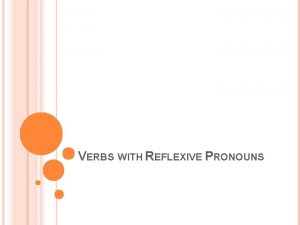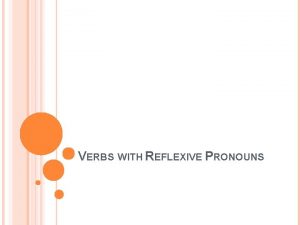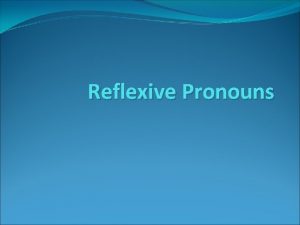Reflexive and Intensive Pronouns Essential Question What is













- Slides: 13

Reflexive and Intensive Pronouns

Essential Question What is the difference between Reflexive and Intensive Pronouns?

Reflexive Pronouns A reflexive pronoun refers to a noun or another pronoun and indicates that the same person is involved. The women found herself a book of folktales. Reflexive pronoun

Intensive Pronouns An intensive pronoun is a pronoun that adds emphasis to a noun or pronoun already named. George himself bought a copy of American Tall Tales. Intensive pronoun

Reflexive and Intensive Pronouns Singular Plural Myself Ourselves Yourself Yourselves Himself, herself, itself Themselves Reflexive and intensive pronouns have identical forms but different functions

Reflexive and Intensive A Reflexive pronoun is part of the basic grammar of the sentence, it cannot be deleted Artemis outdid herself during the hunt. Cannot be deleted

Reflexive and Intensive pronouns are added to a sentence for emphasis and can be deleted without changing the grammar of the sentence. Artemis herself led the hunt. Artemis led the hunt.

Summary What is the difference between a reflexive and intensive pronoun? A reflexive pronoun is essential to the sentence and cannot be deleted. An intensive pronoun is used for emphasis and can be deleted

Reflexive and Intensive 1. I bought myself a Ferrari. 2. I myself bought a Ferrari with my report card money. Intensive Reflexive

Reflexive and intensive NO-NO Rules: 1. Never use a reflexive or intensive pronoun as the subject of a sentence or as the object of a verb or preposition. 2. Never use hisself for himself or theirselves for themselves.

Reflexive and intensive 1. I bought (me, myself) a book about Paul Bunyan. 2. (He, himself) is a legendary giant lumberjack of the north woods. 3. The students bought (theirselves, themselves) a copy of the tales.

Reflexive and intensive 1. Paul Bunyan (he, himself) has a good sense of humor. 2. My friends and (I, myself) find the legend amusing. 3. The giant blue ox, Babe, makes (it, itself) Bunyan’s friend.

The End Assignment: Page 405 Exercise 20 1 -20
 Pronouns
Pronouns Reflexive or intensive
Reflexive or intensive Whats the difference between reflexive and intensive
Whats the difference between reflexive and intensive Reflexive pronouns examples
Reflexive pronouns examples The difference between reflexive and intensive pronouns
The difference between reflexive and intensive pronouns Whats reflexive pronoun
Whats reflexive pronoun Reciprocal pronouns exercises
Reciprocal pronouns exercises Reflexive pronouns definition
Reflexive pronouns definition Whats a pronoun shift
Whats a pronoun shift Difference between reflexive and intensive
Difference between reflexive and intensive Costas levels of questions
Costas levels of questions Subject pronouns
Subject pronouns Cuando se puede omitir el relative pronoun
Cuando se puede omitir el relative pronoun Personal possessive reflexive and indefinite pronouns
Personal possessive reflexive and indefinite pronouns
